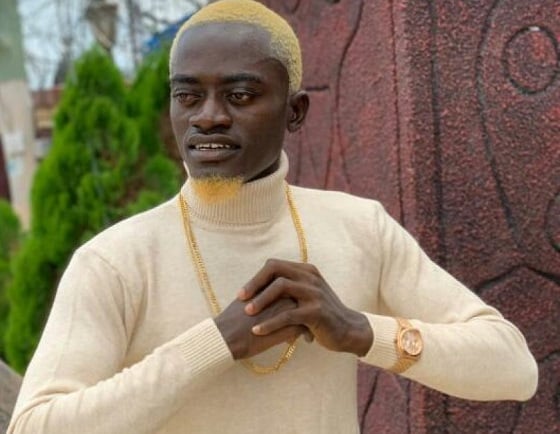As Ghana approaches its general elections scheduled for December 7, 2024, many individuals are eagerly seeking political appointments in the forthcoming government. One notable figure among these aspirants is Kwadwo Nkansah, popularly known as Lil Win, a prominent Ghanaian entertainer. In a recent interview with Amansan Krakye, Lil Win expressed his desire to secure a ministerial role, specifically aiming for the position of Minister of Festivals in the new government, which is expected to take office on January 7, 2025. Despite not being affiliated with any political party, he conveyed his enthusiasm for being appointed and contributing to the cultural vibrancy of the nation.
Lil Win’s aspirations highlight the intersection of entertainment and politics in Ghana, particularly at a time when artistic contributions to national celebrations hold significant value. In his interview, he humorously indicated that he would take up the role of the leading performer at festivities in the coming years, showcasing his confidence in his abilities and his deep-rooted connection to Ghanaian culture. He articulated a vision whereby he would oversee the celebrations, ensuring that they are vibrant and engaging for the populace. His ambition underscores a unique perspective on how artists can influence governance and public morale through cultural events.
Moreover, Lil Win urged that irrespective of who emerges victorious in the elections—be it Cheddar, Mahama, or Bawumia—his request for the ministerial role remains steadfast. His comments reflect a broader trend in Ghana’s political landscape, where artists and public figures often leverage their popularity to gain political traction or roles in government. By publicly expressing his ambitions, Lil Win joins a cohort of Ghanaians who believe that cultural figures can play a pivotal role in governance, particularly in areas related to tourism, culture, and festivals.
The notion of appointing a Minister of Festivals indicates a recognition of the importance of cultural heritage in fostering national unity and promoting tourism. Festivals are vital to Ghanaian society, often serving as platforms for showcasing the country’s rich traditions, art, and music. In his speech, Lil Win portrayed the ministerial role as an opportunity to enhance Ghana’s cultural identity on both a national and international stage, thereby contributing positively to the tourism sector and the economy. This perspective aligns with growing calls for a more holistic approach to development that includes arts and culture as essential components of national strategy.
As the elections draw near, the political milieu is marked by a mix of seriousness over governance issues and light-hearted aspirations from notable personalities like Lil Win. His remarks have sparked discussions about the role of entertainment in politics and whether having entertainers in government can contribute to a more vibrant and relatable political sphere. It also raises questions about the qualifications necessary for governmental roles and how popular figures translate their influence into effective governance.
In conclusion, as Ghanaians prepare for the upcoming elections, Lil Win’s ambitions serve as a reflection of a broader conversation about the intersection of culture and politics. His proposal for the Minister of Festivals brings to light the potential contributions of creative individuals in enhancing the nation’s cultural fabric and promoting tourism. With a diverse array of candidates vying for power, the call for such appointments speaks to a desire for innovative approaches to governance in Ghana, one that embraces cultural celebrations and the arts as vital components of national progress.


